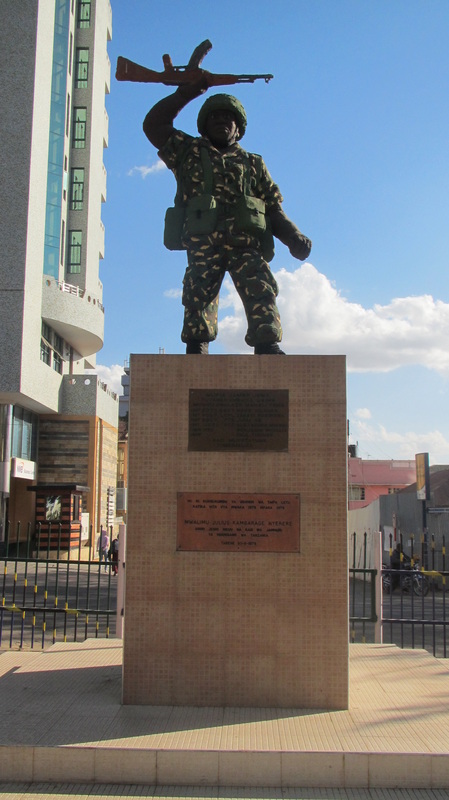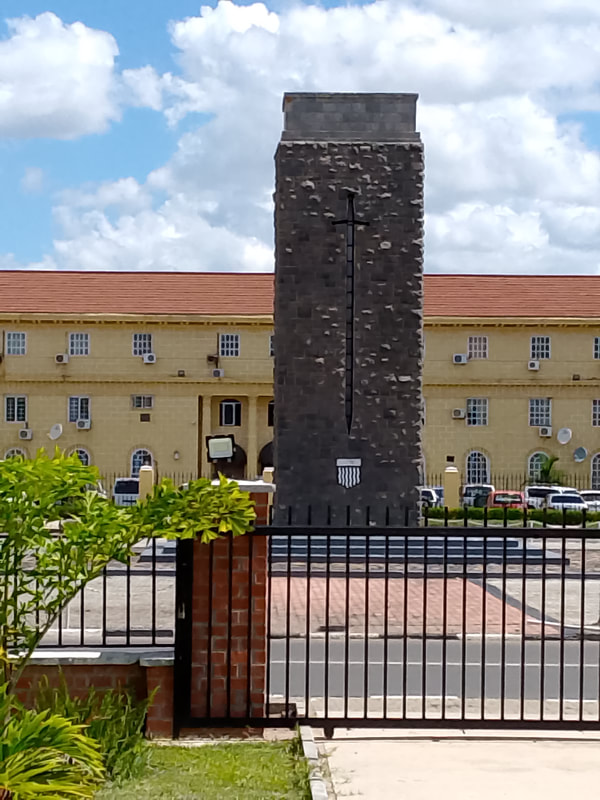Unfortunately, that key recognition of the Nobel Prize award will be lost in the forgotten praise for Tunisia in contrast to the continuing crises offered by Syria, next door Libya, Yemen, and other parts of the Middle East, including Egypt, where the Arab Awakening did not translate into a mostly peaceful and democratic transition. But despite autocratic governments since independence from France in 1956, Tunisia's unique political economic history at least facilitated the development of civil society institutions somewhat independent from the Bourguiba and Ben Ali governments. In effect, these two autocrats established the foundations for democratic transition and, I suspect, eventual consolidation. Not all authoritarian systems are the same, and even slight differences in overall economic orientation and relative efficacy of the rule of law can allow for a relatively strong and diverse civil society to emerge (Tunisia), to be partial if constrained (Egypt), or effectively not to emerge at all (Libya).
So why Tunisia and not Libya or Egypt (just to examine those two nearby cases)? Barrington Moore's (1966) insights help here: "no bourgeoisie, no democracy." Even if the Ben Ali family had their fingers in various economic sectors, for the most part the Tunisian state (and, particularly, the Army) never played a permanent, direct, commanding role in the economy. Tunisia is the land of the bourgeoisie--of small business owners, farmers, tourism operators, and internationally-linked industry--but also of organized labour, a relatively professional civil service, and a vibrant legal and human rights community. After independence under Bourguiba (who studied law and political science in Paris), Tunisia looked set to follow the populist socialist lead of Nasser's Egypt, but in the 1970s Bourguiba and his economic advisers changed course. In combination with his secularizing initiatives around women's rights and free compulsory education, institutional/legal foundations for private enterprise and civil society organizations were in place to some degree by the end of the 1970s, even if political mobilization and protest remained off the table. Despite autocratic politics and some discretionary interference by Bourguiba and particularly Ben Ali into economic affairs, Tunisians fashioned one of the most dynamic and variegated private sectors and civil societies throughout the Middle East and Africa. The rule of law, and the rule of rules, existed to a large extent in Tunisia. Tunisia mostly worked, despite the Ben Ali regime and not because of it (which flies in the face of some World Bank analysis just prior to Ben Ali's downfall in January 2011).
This contrasts sharply with Libya under Gadhafi, and could be observed simply in the day-to-day minutiae of life (I visited both countries in 2005): in Tunis, traffic lights, lanes, stop signs, organized public transit, and rules generally followed; in Tripoli, no traffic lights and no rules (I was told that there were no traffic lights in Tripoli because they would be ignored anyway. Accra and Lagos compare similarly, although even in Lagos there is an occasionally working traffic light, and rules then come into play for the most part.) Eventually, with the increase in internet access (and Tunisia had the highest ICT penetration rates in Africa by 2010), a controlled media could be bypassed. Where formal political mobilization and protest didn't exist, a widely shared sense of injustice, unfairness, and resentment about the lavish Ben Ali extended family lifestyle built up.
Authoritarian ostentation and discretion creates resentment and trickles down into the actions of state agents: frustrated in his efforts to expand his fruit-selling business by local officials (his produce confiscated given a missing license, with few avenues of appeal), university educated Mohamed Bouazizi self-immolated in December 2010. The internationally-praised economy wasn't working for far too many Tunisians, even if the Ben Ali family flourished. But once protests spread to Tunis and other cities, the Army and security services ultimately held back, and Ben Ali fled. Without a relatively independent and professional Army, without a broad and diverse civil society, without a wide range of private sector actors (employers, entrepreneurs, farmers, organized labour, lawyers), Tunisia would be Egypt today, or worse. It isn't political party mobilization and electoral competition which determine the potential of democratic transition, it is the wider milieu represented by a vibrant civil society. In the absence of a vibrant civil society (representing the politics of interest and compromise, of a politics mediated by the state, not solely in terms of capturing the state), the politics of affection and passion take their place, and too often that leads back towards exclusivist political and economic institutions.
Tunisia is hardly out of the woods yet, as terrorist attacks and some government impulses towards old-school security practices. But given a well designed constitution, deep-rooted civil society institutions, a freer media, and lots of horrendous examples of what can happen when compromise and inclusiveness are set aside, Tunisia's prospects for democratic consolidation are, analytically speaking, pretty damn good.



 RSS Feed
RSS Feed
